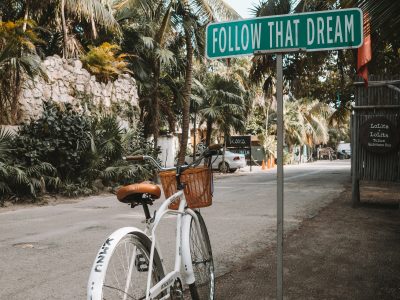Access Denied: Africans Face Global Discrimination Daily
What nationality do you have to be in order to be entitled to explore the planet? What is standing between you and your dream to see the world?

How can you follow your dream when your access is censored? (Image: Alex Azabache @Unsplash)
Discrimination Against Africans in Global Travel and Economy
It’s the 21st century, but Africans still face walls that others don’t see.
Whether it’s applying for a visa, opening a foreign bank account, or doing business across borders, the African passport comes with an invisible warning sign: “Extra scrutiny required.”
Despite the progress made on the continent, the global system continues to treat Africans as second-class citizens. Let’s talk about it.
Travel While African
Africans often face major hurdles just to travel. It’s not just the high cost of airfare. It’s the suspicion.
Try applying for a tourist visa as a Nigerian, Congolese, or Somali citizen. Chances are high you’ll face long waits, repeated rejections, and harsh questioning. You may even be denied a visa with no explanation. Why? Because African travelers are often presumed to be illegal migrants or security risks.
Even students and professionals, fully funded and invited abroad, face harsh travel restrictions. Embassies ask for unreasonable proof of funds, question intentions, and delay applications.
The African passport is one of the least powerful in the world. Many Africans need visas for over 150 countries that welcome Westerners with open arms and little paperwork.
The Airport Experience
Let’s say an African traveler gets the visa and boards the flight. The next battle begins at immigration.
Across Europe, the U.S., and even parts of Asia, African travelers are flagged more often for “random checks.” Bags are searched. Questions are sharp. Facial expressions turn cold.
Some are detained for hours. Others are sent back at their own expense.
African travelers are also the least likely to be welcomed into “global north” airports without suspicion, no matter their wealth, education, or purpose.
It’s exhausting, degrading, and common.
Banking While African
Doing business internationally as an African is another mountain to climb.
Opening a foreign account? Expect rejection or endless paperwork. Sending or receiving funds? Prepare for high fees, long delays, and investigations.
Many African countries are red-flagged by international banks as “high risk.” This blanket label affects honest entrepreneurs, NGOs, and students. It makes it harder to trade, invest, or collaborate globally.
Even platforms like PayPal or Stripe have limited availability or full restrictions in many African countries. This locks millions out of the digital economy.
And if you’re sending money home as a diaspora African, you’ll likely face the highest remittance fees in the world. That’s not coincidence—it’s systemic.
Business Biases
When African entrepreneurs show up in global rooms, they’re often underestimated.
They get fewer investment opportunities. Their ideas are scrutinized more. Sometimes, they’re asked to “find a Western co-founder” to secure funding.
Meanwhile, foreign investors with limited understanding of Africa invest millions to establish businesses in Africa, often with poor results.
There’s a global perception problem. Africans are often seen as recipients of help, rather than creators of innovation. But this couldn’t be further from the truth.
Africans are building tech unicorns, green energy solutions, and bold cultural movements. They deserve recognition—not suspicion.
The Role of Racism
Let’s call it what it is: global anti-African discrimination is rooted in racism.
Colonial ideas still shape how the world sees Africa. The continent is seen as poor, unstable, and helpless. So Africans are viewed as threats, burdens, or people to be saved.
This perception filters into airport security, visa offices, banking policies, and business deals.
It’s not just about policies—it’s about the people behind those policies, and the stories they’ve been told.
Changing the Narrative
We need global systems to treat African citizens with fairness.
That means:
-
Simplifying visa processes for African travelers
-
Improving international banking access
-
Recognizing African businesses as equals
-
Eliminating racist profiling at borders
It also means changing how Africa is portrayed in media, classrooms, and government circles.
Africa is not a place of poverty and problems. It is a place of abundant natural resources and a place of culture, brilliance, and possibility.
Africans Belong Everywhere
Africans don’t ask for handouts. They ask for dignity.
The right to travel without harassment. The right to build without prejudice. The right to trade, learn, and grow, without being treated like a suspect.
Discrimination in global travel and economy isn’t just unfair. It’s a theft of opportunity.
If we want a fairer world, we must change how we see and treat Africa.
🟡 At Feelnubia.org.uk, we believe in rewriting Africa’s story. Not just for the continent, but for every African in the world. Join the movement.
Join the conversation!
If you liked this story, you should check out this one!
